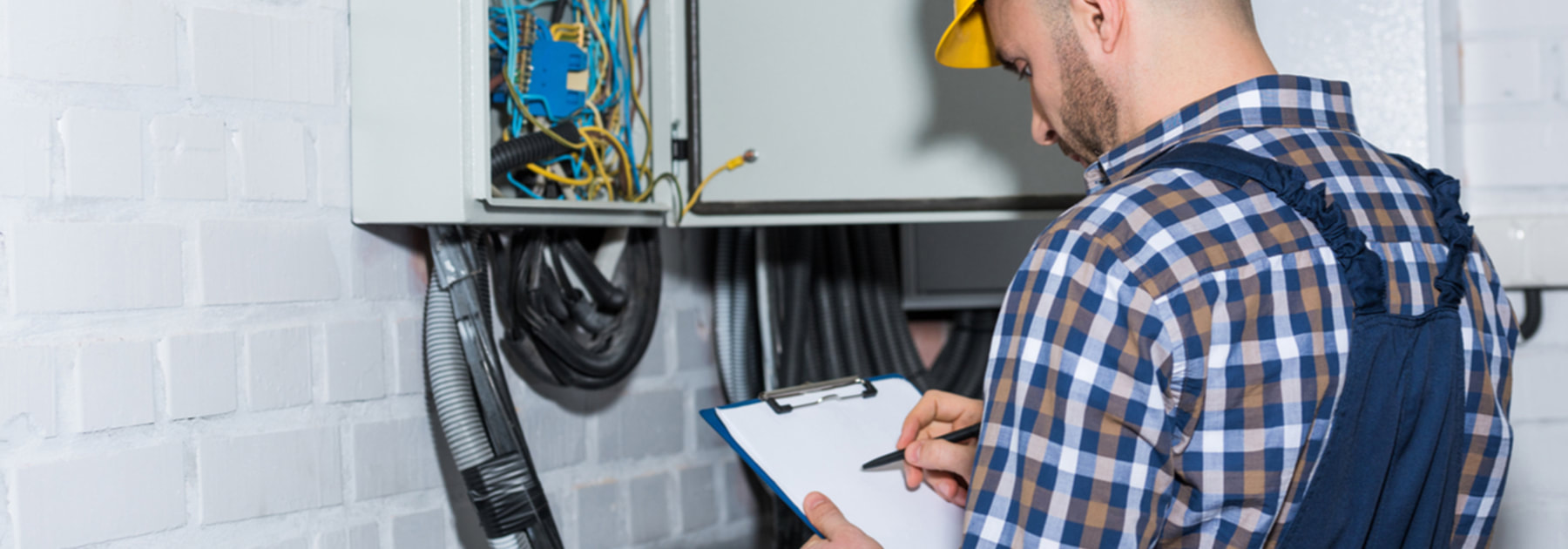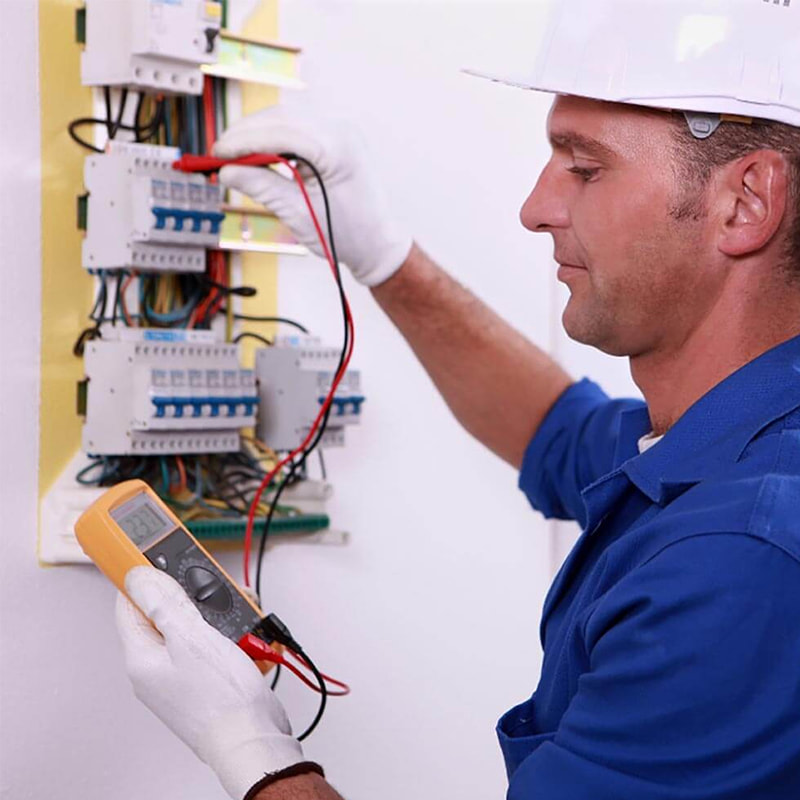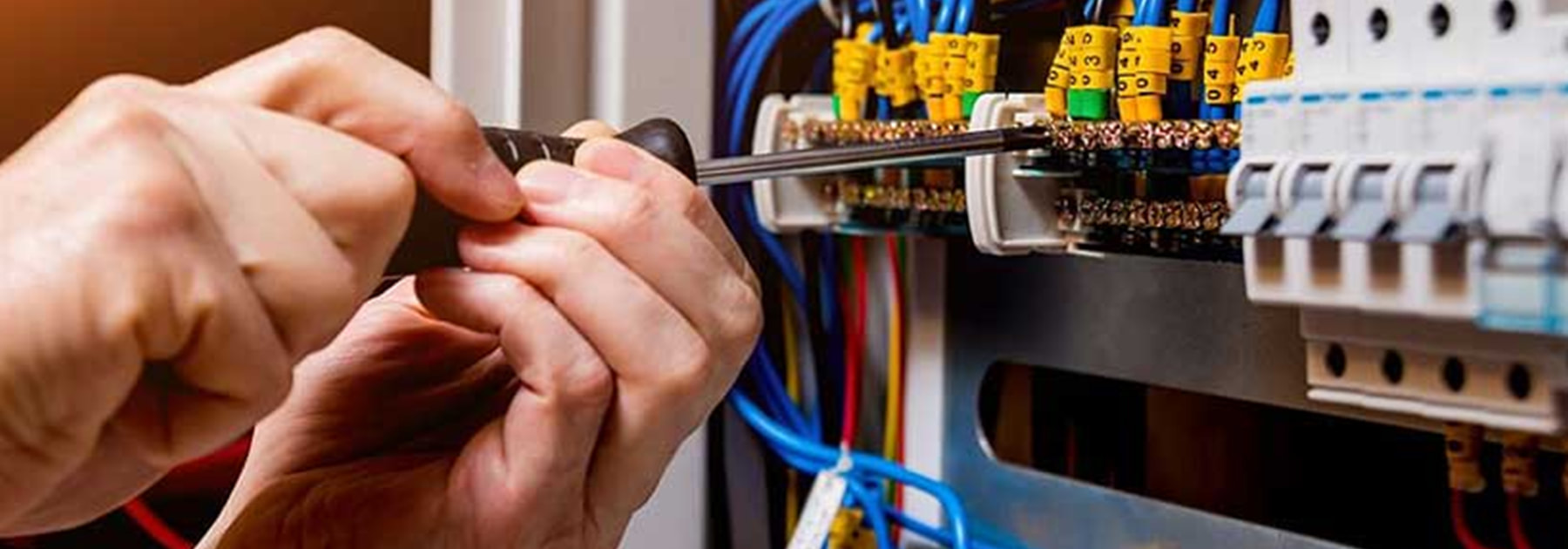A home electrical inspector ensures the safety and code compliance of a home's electrical systems during the buying process. They inspect wiring, circuits, outlets, and fixtures for hazards or deficiencies.
The inspector also evaluates the service panel, grounding system, and tests outlets and fixtures for proper functioning. After inspection, they provide a detailed report outlining any issues and necessary repairs or upgrades. This report can help home buyers make informed decisions about their purchase.
The inspector also evaluates the service panel, grounding system, and tests outlets and fixtures for proper functioning. After inspection, they provide a detailed report outlining any issues and necessary repairs or upgrades. This report can help home buyers make informed decisions about their purchase.
What Does a Home Electrical Inspector Do?
Inspects the Electrical System of a Home
A home electrical inspector is responsible for evaluating the electrical systems in a home to ensure that they are safe, up to code, and in good working order. They typically perform housing inspection as part of a home buying or selling process, or as a routine checkup for a homeowner.
Looks for Potential Safety Hazards and Code Violations
During the housing inspection, the electrical inspector will examine the condition and functionality of electrical components and systems to ensure they are in good working order and comply with local electrical codes and regulations. This may include checking for frayed or damaged wires, improper grounding, overloaded circuits, and other hazards.
Makes Recommendations for Repairs or Upgrades
Based on their findings, the inspector will provide a detailed report outlining any issues that need to be addressed, as well as recommendations for repairs or upgrades that may be necessary.
This report is an important tool for homeowners, as it provides them with the information they need to make informed decisions about their electrical system and ensure the safety and reliability of their home's electrical system.
A home electrical inspector is responsible for evaluating the electrical systems in a home to ensure that they are safe, up to code, and in good working order. They typically perform housing inspection as part of a home buying or selling process, or as a routine checkup for a homeowner.
Looks for Potential Safety Hazards and Code Violations
During the housing inspection, the electrical inspector will examine the condition and functionality of electrical components and systems to ensure they are in good working order and comply with local electrical codes and regulations. This may include checking for frayed or damaged wires, improper grounding, overloaded circuits, and other hazards.
Makes Recommendations for Repairs or Upgrades
Based on their findings, the inspector will provide a detailed report outlining any issues that need to be addressed, as well as recommendations for repairs or upgrades that may be necessary.
This report is an important tool for homeowners, as it provides them with the information they need to make informed decisions about their electrical system and ensure the safety and reliability of their home's electrical system.
How Does a Home Electrical Inspector Work?
Follows a Standard Home Inspector Checklist
An electrical inspector uses a standard home inspector checklist to inspect a home's electrical components and systems thoroughly. The checklist includes items like the electrical service entrance, panels, circuits, outlets, switches, and lighting fixtures. Using the home inspector checklist ensures that safety checks are performed and nothing is overlooked, reducing the risk of electrical hazards in the home.
Tests the Functionality of the Electrical System
One of the main tasks of a home electrical inspector is to test the system's functionality. They inspect wiring, outlets, switches, and other components using specialized tools to check voltage, amperage, and resistance. The inspector also checks for wear and tear, damage, and safety issues such as loose or exposed wires and overheating.
Makes Notes and Takes Photos of Any Issues Found
The inspector makes notes and takes photos of any issues found during the housing inspection to create a detailed report. This report outlines the system's condition and recommended repairs or upgrades. Detailed documentation ensures nothing is overlooked and helps the homeowner, electricians, or insurance companies make informed decisions.
An electrical inspector uses a standard home inspector checklist to inspect a home's electrical components and systems thoroughly. The checklist includes items like the electrical service entrance, panels, circuits, outlets, switches, and lighting fixtures. Using the home inspector checklist ensures that safety checks are performed and nothing is overlooked, reducing the risk of electrical hazards in the home.
Tests the Functionality of the Electrical System
One of the main tasks of a home electrical inspector is to test the system's functionality. They inspect wiring, outlets, switches, and other components using specialized tools to check voltage, amperage, and resistance. The inspector also checks for wear and tear, damage, and safety issues such as loose or exposed wires and overheating.
Makes Notes and Takes Photos of Any Issues Found
The inspector makes notes and takes photos of any issues found during the housing inspection to create a detailed report. This report outlines the system's condition and recommended repairs or upgrades. Detailed documentation ensures nothing is overlooked and helps the homeowner, electricians, or insurance companies make informed decisions.
Common Problems Found by a Home Electrical Inspector
1. Outdated or Inadequate Wiring
Old or insufficient wiring is a frequent issue discovered by home electrical inspectors. Outdated wiring may not meet current safety codes or handle modern electrical demands, causing overloaded circuits, tripped breakers, or even fire.
To ensure the safety of the electrical system, it's crucial to have a licensed electrician inspect and upgrade the wiring. This might include replacing the wiring, upgrading the electrical panel, or adding circuits to accommodate modern appliances and electronics.
2. Improperly Installed Electrical Panels or Outlets
Electrical inspectors often find incorrectly installed panels or outlets, which can create safety hazards like fire or electric shocks. To ensure occupants' safety, licensed electricians should address issues such as overcrowding, inadequate support, incorrect wiring, lack of proper grounding, inadequate clearance, and non-compliance with building codes.
3. Overloaded Circuits
Overloaded circuits are another common problem found by home electrical inspectors. They happen when too many devices or appliances are connected to a circuit, causing it to trip or blow a fuse.
Signs of an overloaded circuit include tripping breakers, flickering lights, hot outlets, and burning smells. This issue should be addressed promptly to avoid safety hazards by reducing the electrical load or upgrading the system.
4. Ground Fault Circuit Interrupters Not Properly Installed
Improperly installed ground fault circuit interrupters (GFCIs) pose a serious risk of electrical shock. GFCIs should be correctly wired and installed in areas where there is a high risk of electrical shock, such as near water sources. They can also become faulty over time and should be regularly inspected and replaced when necessary.
It is important to have a licensed electrician install and maintain GFCIs to ensure they are functioning correctly and protecting people from ground faults.
Do you need an electrical inspection?
Old or insufficient wiring is a frequent issue discovered by home electrical inspectors. Outdated wiring may not meet current safety codes or handle modern electrical demands, causing overloaded circuits, tripped breakers, or even fire.
To ensure the safety of the electrical system, it's crucial to have a licensed electrician inspect and upgrade the wiring. This might include replacing the wiring, upgrading the electrical panel, or adding circuits to accommodate modern appliances and electronics.
2. Improperly Installed Electrical Panels or Outlets
Electrical inspectors often find incorrectly installed panels or outlets, which can create safety hazards like fire or electric shocks. To ensure occupants' safety, licensed electricians should address issues such as overcrowding, inadequate support, incorrect wiring, lack of proper grounding, inadequate clearance, and non-compliance with building codes.
3. Overloaded Circuits
Overloaded circuits are another common problem found by home electrical inspectors. They happen when too many devices or appliances are connected to a circuit, causing it to trip or blow a fuse.
Signs of an overloaded circuit include tripping breakers, flickering lights, hot outlets, and burning smells. This issue should be addressed promptly to avoid safety hazards by reducing the electrical load or upgrading the system.
4. Ground Fault Circuit Interrupters Not Properly Installed
Improperly installed ground fault circuit interrupters (GFCIs) pose a serious risk of electrical shock. GFCIs should be correctly wired and installed in areas where there is a high risk of electrical shock, such as near water sources. They can also become faulty over time and should be regularly inspected and replaced when necessary.
It is important to have a licensed electrician install and maintain GFCIs to ensure they are functioning correctly and protecting people from ground faults.
Do you need an electrical inspection?
What Are the Benefits of Hiring a Home Electrical Inspector?
1. Identifies Potential Safety Hazards
An electrical inspector can identify potential safety hazards such as outdated electrical panels, overloaded circuits, or faulty wiring that could pose a fire or electrocution risk. Knowing about these issues before purchasing the home can help you make an informed decision about whether the property is safe for you and your family.
2. Ensures Compliance With Code Requirements
Electrical inspectors can ensure that the home's electrical system meets the latest building codes and safety standards. This can help avoid costly repairs or upgrades down the line, and ensure that the home is compliant with local regulations.
3. Aids in Negotiating Repairs or Credits With the Seller
Electrical inspection before buying a home can help you negotiate the price or request that the seller makes necessary repairs before closing the sale. This can save you money on repairs or upgrades that may be required after you move in.
4. Gives the Buyer Peace of Mind
Knowing that the home's electrical system has been thoroughly inspected and meets safety standards can provide peace of mind and help you feel more confident in your decision to purchase the property.
An electrical inspector can identify potential safety hazards such as outdated electrical panels, overloaded circuits, or faulty wiring that could pose a fire or electrocution risk. Knowing about these issues before purchasing the home can help you make an informed decision about whether the property is safe for you and your family.
2. Ensures Compliance With Code Requirements
Electrical inspectors can ensure that the home's electrical system meets the latest building codes and safety standards. This can help avoid costly repairs or upgrades down the line, and ensure that the home is compliant with local regulations.
3. Aids in Negotiating Repairs or Credits With the Seller
Electrical inspection before buying a home can help you negotiate the price or request that the seller makes necessary repairs before closing the sale. This can save you money on repairs or upgrades that may be required after you move in.
4. Gives the Buyer Peace of Mind
Knowing that the home's electrical system has been thoroughly inspected and meets safety standards can provide peace of mind and help you feel more confident in your decision to purchase the property.
Conclusion
A housing inspection is a critical step in the home buying process. It is essential to ensure that the home you are purchasing is safe, structurally sound, and in good condition.
One critical component of the best home inspection is the housing electrical inspection, which assesses the electrical system's safety and functionality. It can identify potential safety hazards, costly repairs, and functionality issues, providing the buyer with peace of mind and enabling them to make an informed decision about the home's purchase.
Learn more about the importance of electrical inspection.
One critical component of the best home inspection is the housing electrical inspection, which assesses the electrical system's safety and functionality. It can identify potential safety hazards, costly repairs, and functionality issues, providing the buyer with peace of mind and enabling them to make an informed decision about the home's purchase.
Learn more about the importance of electrical inspection.
Wanna make your whole family and home safe from electrical hazards?
Phase 1 Electric provides 24 Hours Emergency Electrician service in Noblesville, IN.





